Chicago (/ʃɪˈkɑːɡoʊ/ shih-KAH-goh, locally also /ʃɪˈkɔːɡoʊ/ shih-KAW-goh; Miami-Illinois: Shikaakwa; Ojibwe: Zhigaagong) is the most populous city in the U.S. state of Illinois and the third-most populous in the United States after New York City and Los Angeles. With a population of 2,746,388 in the 2020 census, it is also the most populous city in the Midwest. As the seat of Cook County (the second-most populous U.S. county), the city is the center of the Chicago metropolitan area, one of the largest in the world.
On the shore of Lake Michigan, Chicago was incorporated as a city in 1837 near a portage between the Great Lakes and the Mississippi River watershed. It grew rapidly in the mid-19th century; by 1860, Chicago was the youngest U.S. city to exceed a population of 100,000. The Great Chicago Fire in 1871 destroyed several square miles and left more than 100,000 homeless, but Chicago's population continued to grow to 503,000 by 1880 and then doubled to more than a million within the decade. The construction boom accelerated population growth throughout the following decades, and by 1900, less than 30 years after the fire, Chicago was the fifth-largest city in the world. Chicago made noted contributions to urban planning and zoning standards, including new construction styles (such as Chicago School architecture, the development of the City Beautiful Movement, and the steel-framed skyscraper).
Chicago is an international hub for finance, culture, commerce, industry, education, technology, telecommunications, and transportation. It is the financial center of the U.S. Midwest and the site of the creation of the first standardized futures contracts, issued by the Chicago Board of Trade, which today is part of the largest and most diverse derivatives market in the world, generating 20% of all volume in commodities and financial futures alone. O'Hare International Airport is routinely ranked among the world's top six busiest airports according to tracked data by the Airports Council International. The region also has the largest number of federal highways and is the nation's railroad hub. The Chicago area has one of the highest gross domestic products (GDP) in the world, generating $689 billion in 2018. The economy of Chicago is diverse, with no single industry employing more than 14% of the workforce. It is home to several Fortune 500 companies, including Archer-Daniels-Midland, Conagra Brands, Exelon, JLL, Kraft Heinz, McDonald's, Mondelez International, Motorola Solutions, Sears, and United Airlines Holdings.
Chicago's 58 million tourist visitors in 2018 set a new record. Landmarks in the city include Millennium Park, Navy Pier, the Magnificent Mile, Art Institute of Chicago, Museum Campus, Willis (Sears) Tower, Grant Park, Museum of Science and Industry, and Lincoln Park Zoo. Chicago is also home to the Barack Obama Presidential Center being built in Hyde Park on the city's South Side. Chicago's culture includes the visual arts, literature, film, theater, comedy (especially improvisational comedy), food, dance (including modern dance and jazz troupes and the Joffrey Ballet), and music (particularly jazz, blues, soul, hip-hop, gospel, and electronic dance music, including house music). Chicago is also the location of the Chicago Symphony Orchestra and the Lyric Opera of Chicago. Of the area's colleges and universities, the University of Chicago, Northwestern University, and the University of Illinois Chicago are classified as "highest research" doctoral universities. Chicago has professional sports teams in each of the major professional leagues, including two Major League Baseball teams.
Etymology and nicknames
The name Chicago is derived from a French rendering of the indigenous Miami-Illinois word shikaakwa for a wild relative of the onion; it is known to botanists as Allium tricoccum and known more commonly as "ramps". The first known reference to the site of the current city of Chicago as "Checagou" was by Robert de LaSalle around 1679 in a memoir. Henri Joutel, in his journal of 1688, noted that the eponymous wild "garlic" grew profusely in the area. According to his diary of late September 1687:
The city has had several nicknames throughout its history, such as the Windy City, Chi-Town, Second City, and City of the Big Shoulders.
If you want to read a lot more, go here: https://en.wikipedia.org/wiki/Chicago
- 1 1/2 cups instant potato flakes
- 1 cup water
- 1/2 cup sour cream
- 1/2 teaspoon salt
- 2 eggs
- 1 to 1-1/2 pounds ground beef
- 1 small onion, finely chopped
- 1 medium-sized green bell pepper, finely chopped
- 1 cup seasoned bread crumbs
- 3/4 cup milk
- 2 tablespoons steak sauce
- Preheat oven to 350º. Coat a 5- x 9-inch loaf pan with cooking spray.
- In a medium-sized bowl, combine potato flakes, water, sour cream, salt, and 1 egg; mix well and set aside.
- In another medium-sized bowl, combine remaining ingredients; mix well.
- Pat half of meat mixture into prepared loaf pan. Press meat down and make a 1/2-inch indentation down middle length of loaf. Fill indentation with potato mixture. Gently top with remaining meat, pressing meat down over and around potato filling.
- Bake 55 to 60 minutes or until juices run clear. Allow to set 5 minutes before slicing.
1956 – Björn Borg, Swedish tennis player
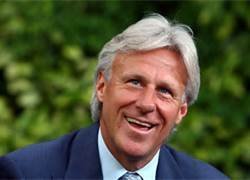
1967 – Paul Giamatti, American actor


.jpg)

_4-1-22.jpg)

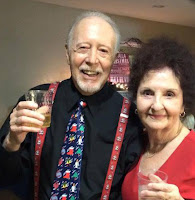
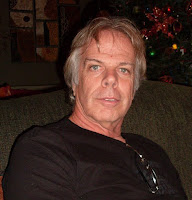
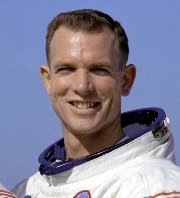
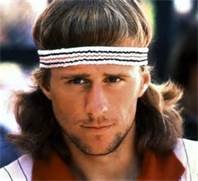
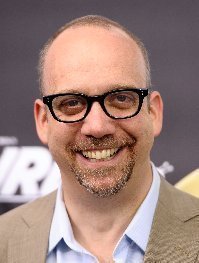

No comments:
Post a Comment